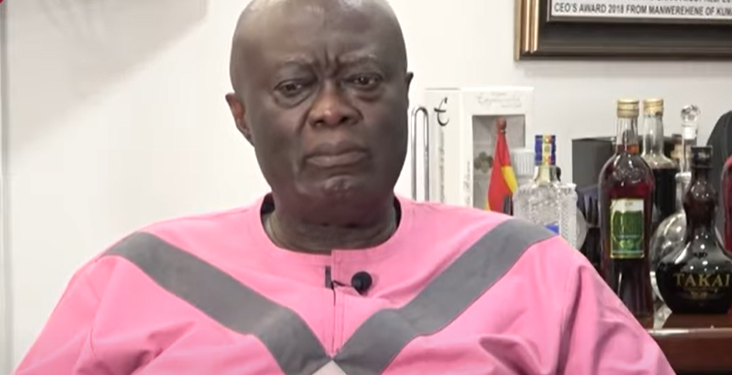adverts
VIDEO: GIHOC CEO blames recent sickness on work related stress
Maxwell Kofi Jumah, CEO of GIHOC Distilleries Company Limited, recently revealed that workplace stress and employee-related frustrations contributed to a recent health setback.
This comes after he recently got sick and was examined by doctors in the United States of America (USA), it was revealed that he had excess iodine in his system.
This, according to him, was attributed to too much eating of catfish, which he said the doctors said contained iodine.
adverts
He said that was one of the diagnosis he was given when he felt sick recently and went for a routine medical examination in the United States.
Speaking in an interview with Puretvonline.com, Jumah explained that his commitment to upholding high standards at the company took a toll on his well-being, largely due to challenging interactions with certain employees.
Jumah detailed how his dedication often meant long hours and insufficient rest, as he felt responsible for ensuring GIHOC’s success. “I didn’t want any disgrace or shame to fall on the company while I was in charge,” he noted, emphasising his sense of duty to GIHOC’s reputation. This pressure, Jumah said, stemmed partly from his interactions with some employees, whom he felt did not share the same commitment.
He recalled a conversation with one staff member who questioned his dedication, suggesting that Jumah viewed the company as his personal property.
In response, Jumah clarified that his role is simply to oversee GIHOC’s operations until his tenure ends and that his commitment to high standards should not be misinterpreted.
Jumah also addressed broader concerns about employee attitudes within Ghana’s public sector, saying he understands the frustrations of those who feel that some workers in government institutions lack commitment.
While he disagreed with the notion that all government employees are unmotivated, he acknowledged that the attitudes of a few can hinder the efficiency and morale of the organization. “There are many hard-working Ghanaians,” he stressed, “but it’s a challenge when leaders have to manage those who do not fully commit to their roles.”
Reflecting on his experience, Jumah said the stress from managing certain employees and maintaining productivity standards eventually impacted his health.
“There are dedicated, hard-working Ghanaians,” he insisted, “but overcoming lax attitudes in the workforce remains a significant challenge for government institutions.”


